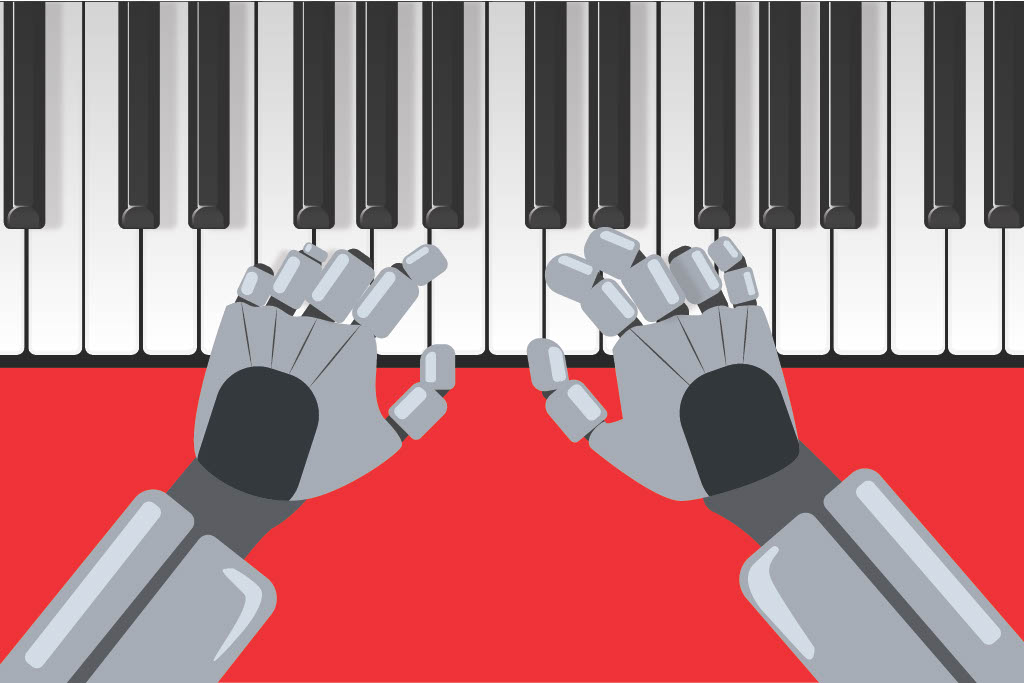
Many have come across and laughed at the artificial intelligence (AI) cover of Plankton from Spongebob singing “Shine Bright Like a Diamond” by Rihanna.
But when TikTok user ghostwriter977 trained AI to duplicate and generate a new song that many were fooled to be by Drake and the Weekend, musicians and copyright defenders alike began to express concern over the potential takeover of AI in the music industry.
New AI technology has artificially generated elements of music like vocals, lyrics and production. As AI becomes more advanced, music listeners wonder if machines will replace the authenticity and creativity of human artists.
AI infiltrated the music industry long before many may realize. Applications like Shazam — which use AI to help people quickly identify a song they don’t recognize — have been around since 2002. AI has also changed the way music is promoted, spotting various patterns and trends in vast amounts of data that human advertisers often miss.
Will AI replace artists in the music industry?
AI has played a role in the music industry, but never a creative one. These concerns have led artists to question whether AI will eventually replace them.
Dr. Tom Collins, associate professor of music engineering technology at UM, has always been fascinated by how writing music can be duplicated by AI.
“If I say something like, write 16 measures of music in the style of Alicia Keys, if we’ve listened to a bit of her music, some of us can do that. And so, I was fascinated in how we achieve that, discovering and utilizing certain patterns that might indicate that it is more Alicia Keys than Beethoven,” Collins said in an interview with News@theU.
Collins emphasizes that as AI advances, it will continue to revolutionize the music industry. Though AI may be growing at a seemingly fast pace, the algorithm is still not advanced enough to entirely replace a human being.
AI’s advanced algorithm makes its creations possible, but it only works with preexisting material found within its databases and patterns. Since creating original ideas and concepts is currently impossible for AI, it will take a long time before AI can replace human thinking patterns and creative processes.
Legal issues with AI-generated music
Attempts at legal regulation often follow advancing technology. In 2017, the emergence of deepfakes made many politicians fear that their next big political scandal could be fabricated.
Deepfakes are a type of synthetic media that have been digitally manipulated to replace one person’s likeness convincingly with that of another, making it easy to spread misinformation and confusion.
This technology also threatens individuals in the music industry. The unregulated use of voice duplications may infringe on their copyrights, lower their earning potential or compromise their reputation.
The U.S. Copyright Office stated that it will not register works produced by a machine or AI system, adding that copyright protection does not extend to non-human creators. Wrongful distribution of AI-generated music can lead to copyright infringement, unlawful impersonation or privacy infringement, all of which have serious legal repercussions.
In April 2023, legal issues led to the removal of TikTok user ghostwriter977’s AI-generated track “Heart on my Sleeve,” which featured Drake and The Weeknd despite their lack of involvement. The creator, however, did not face legal consequences.
This case is just one example of the legal policies surrounding AI and copyright laws that are still up for interpretation.
It’s about the artist
At the moment, the duplicative power of AI cannot replace the authenticity and originality consumers crave from the work of a human artist.
Although fans can digitally stream a song over 10,000 times, many are willing to pay excessive amounts to hear their favorite artist sing that exact song live. They are paying to see the artist perform that song, not just to hear it.
While AI-generated music threatens the authenticity of gifted individuals, current legal regulations protect musicians from competing with AI. Though it may be able to replicate great work, AI will never create the original, authentic work that an individual can.





